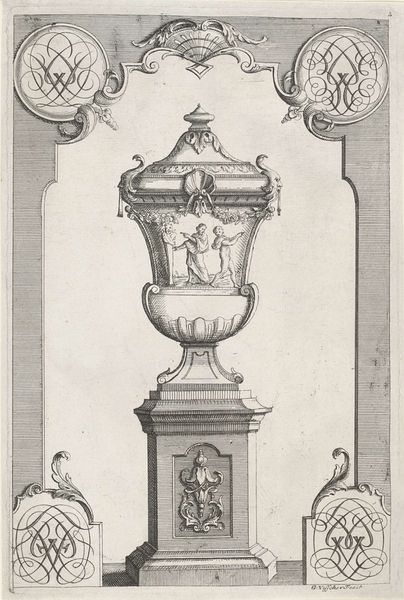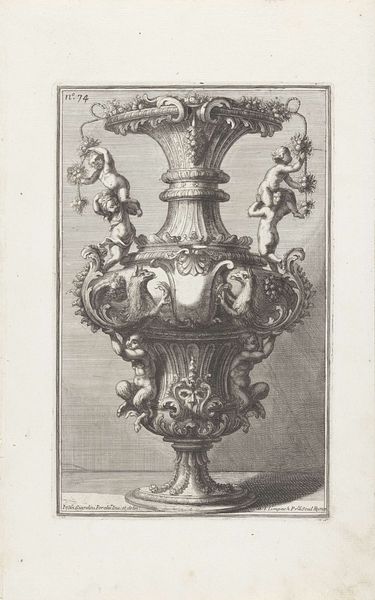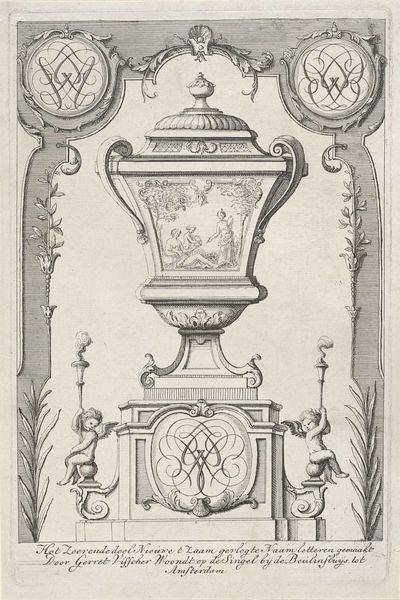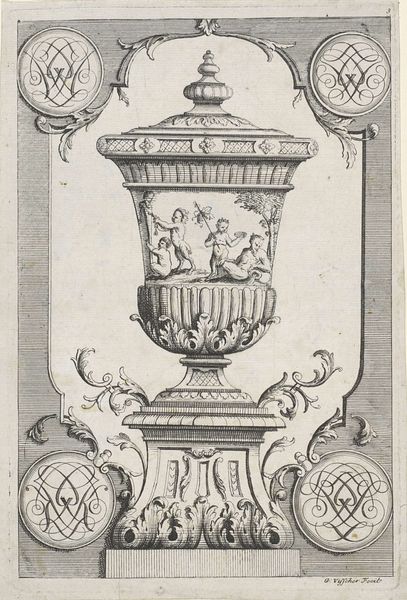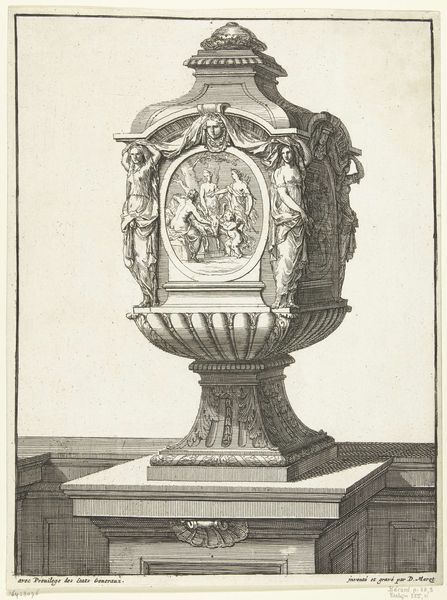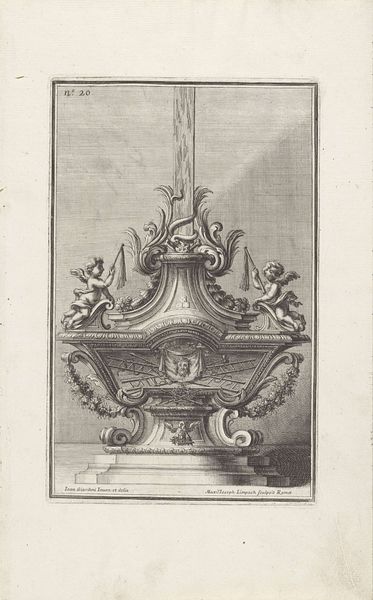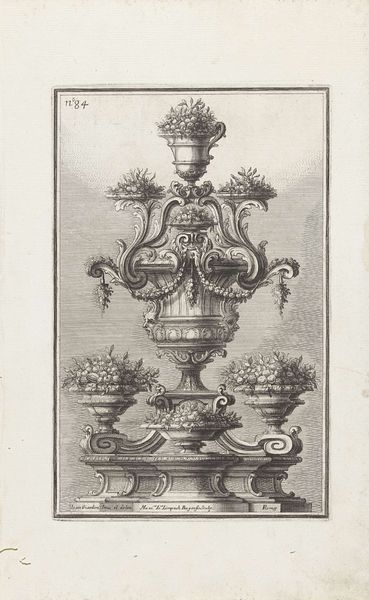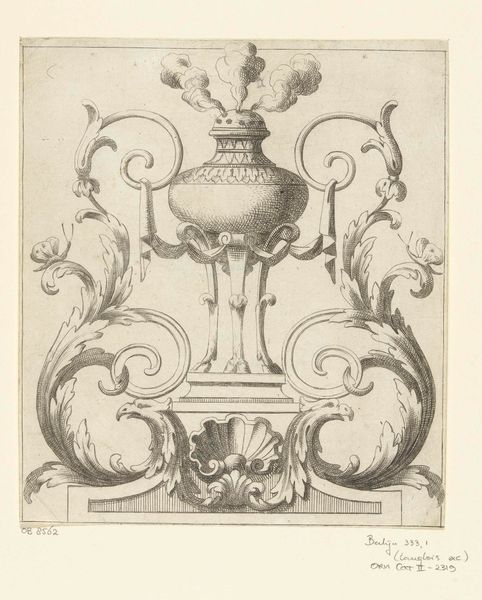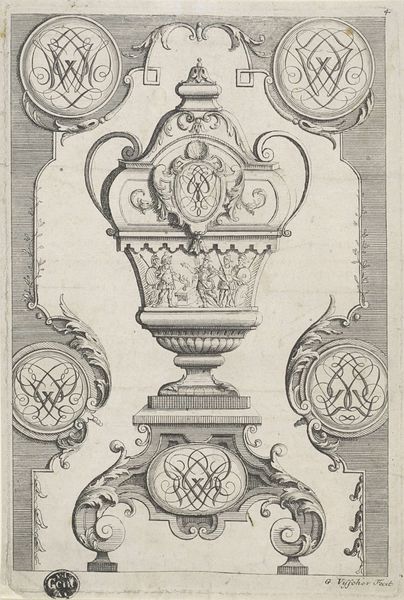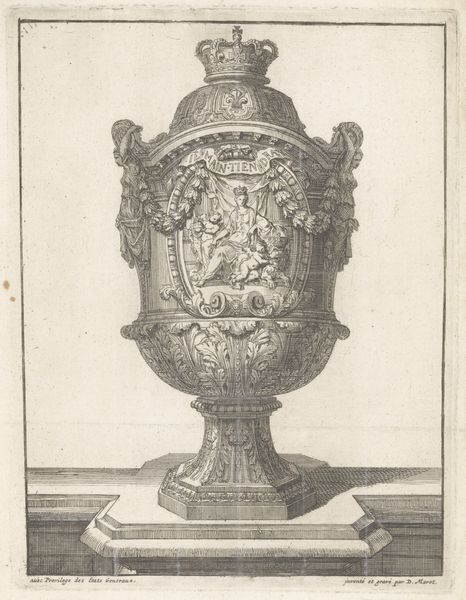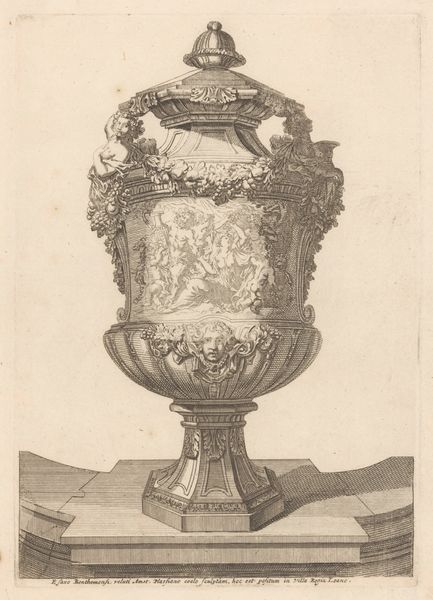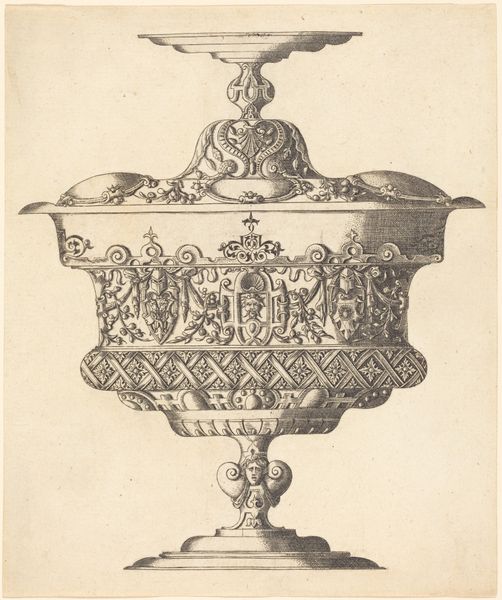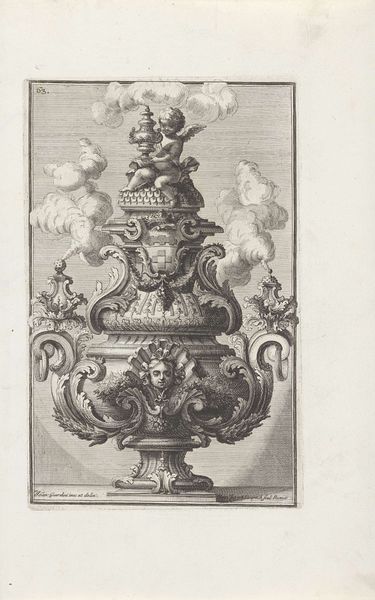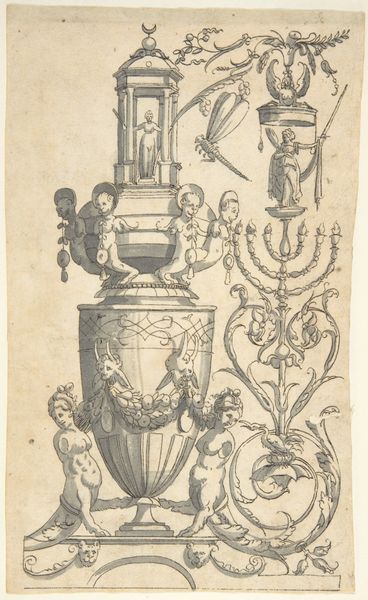
engraving
#
baroque
#
pen sketch
#
old engraving style
#
form
#
pen-ink sketch
#
line
#
pen work
#
history-painting
#
decorative-art
#
engraving
Dimensions: height 250 mm, width 160 mm
Copyright: Rijks Museum: Open Domain
Editor: This engraving is titled "Tuinvaas met monogrammen en putti" which translates to Garden Vase with Monograms and Putti, by Gerrit Visscher and dates to between 1690 and 1710. It is created using engraving on paper. It feels very ornamental and balanced. What aspects of its form stand out to you? Curator: Indeed, the bilateral symmetry is striking, a fundamental organizing principle here. The composition guides our eye vertically, from the base to the ornate crest. Note how the artist contrasts textures: the smooth curves of the putti against the intricate details of the foliage. Consider also the negative space, carefully shaped to complement the solid forms. Editor: I hadn’t noticed how carefully the negative space was considered. It really does play an active role, especially around the handles of the vase and within the crest. The monograms, repeated on the vases, create a rhythm. What do you make of those? Curator: The monograms act as focal points, drawing our attention to the center of each object. They are integral to the overall decorative scheme. Notice how their circular forms echo the curves found throughout the engraving. What function could that repetition of form perform? Editor: It creates visual harmony, I think, by establishing connections across the different elements. It contributes to the feeling of balance that I observed initially. It also strikes me that these vases could be studies in ideal forms, maybe designs intended for production in metal or stone. Curator: Precisely. This work exemplifies the Baroque aesthetic, which often emphasizes grandeur and visual complexity. The emphasis on form and pattern reveals Visscher's skill in orchestrating intricate visual elements, doesn’t it? Editor: Yes, definitely. Thinking about it now, I notice so much interplay between line, form, and space; there is not one part which could be taken out without affecting the others. I found myself going beyond simply observing decorative art to noticing a perfect composition! Thank you.
Comments
No comments
Be the first to comment and join the conversation on the ultimate creative platform.
